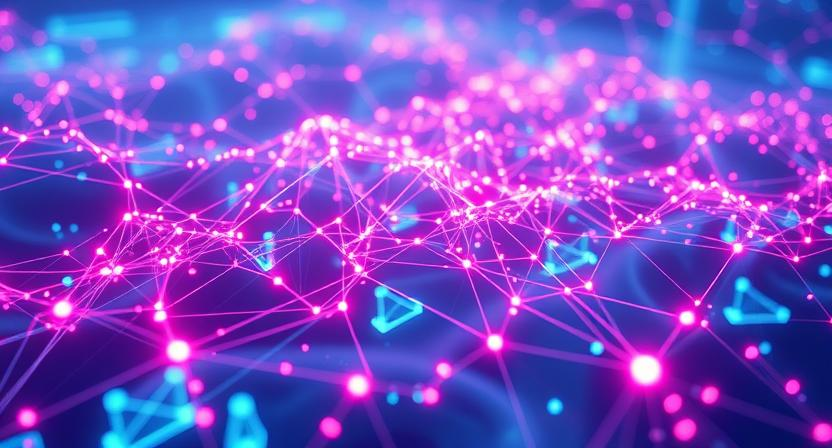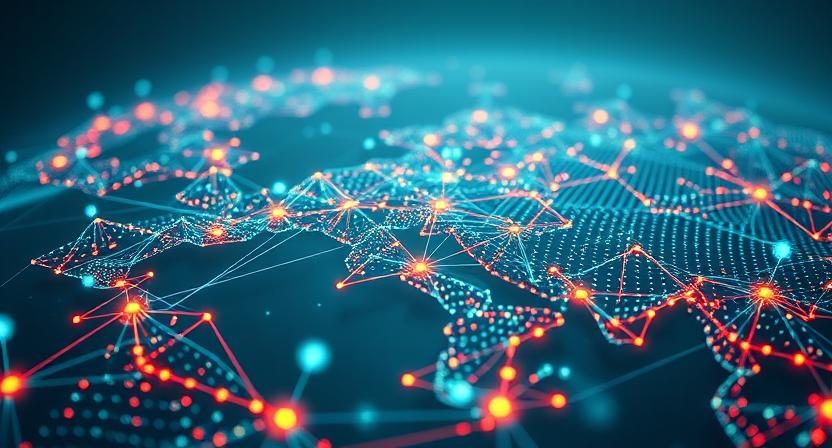Introduction
The internet is evolving rapidly, and two of the most talked-about concepts today are Web3 and the Metaverse. Both promise to revolutionise how we interact online, offering decentralized, immersive, and user-controlled experiences. But what exactly are they, and how do they connect?
In this blog post, we’ll explore:
- What Web3 is and how it differs from Web2
- What the Metaverse is and why it matters
- How Web3 powers the Metaverse
- Real-world applications and challenges
- The future of a decentralized digital world
1. What is Web3?
Web3 represents the third generation of the internet, built on blockchain technology. Unlike Web2 (the current internet dominated by centralized platforms like Google, Facebook, and Amazon), Web3 focuses on:
- Decentralisation – No single entity controls data; instead, it’s distributed across blockchain networks.
- User Ownership – Users own their data, digital assets (NFTs), and identities via crypto wallets.
- Smart Contracts – Self-executing agreements on blockchains (e.g., Ethereum) enable trustless transactions.
- Tokenization – Cryptocurrencies and NFTs allow new economic models (DeFi, play-to-earn, etc.).
Web2 vs. Web3
| Aspect | Web2 (Current Web) | Web3 (Decentralised Web) |
|---|---|---|
| Control | Centralised (Big Tech) | Decentralised (Users & DAOs) |
| Ownership | Companies own data | Users own data & assets |
| Monetization | Ads & subscriptions | Crypto, NFTs, DeFi |
| Trust Model | Intermediaries | Blockchain & smart contracts |
2. What is the Metaverse?
The Metaverse is a virtual, immersive, and persistent digital universe where users interact via avatars, own digital assets, and engage in social, economic, and gaming activities. Think of it as a 3D internet where virtual and physical realities blend.
Key Features of the Metaverse:
- Virtual Worlds (e.g., Decentraland, The Sandbox)
- Digital Ownership (NFTs for land, wearables, art)
- Interoperability (Assets move across platforms)
- VR/AR Integration (Oculus, Meta Quest, Apple Vision Pro)
- Social & Economic Hubs (Virtual concerts, meetings, marketplaces)
3. How Web3 Powers the Metaverse
The Metaverse needs decentralisation to thrive, and Web3 provides the infrastructure:
A. True Digital Ownership (NFTs)
- In Web2 metaverses (like Meta/Facebook’s Horizon Worlds), assets are locked within their ecosystem.
- In Web3 metaverses, NFTs allow users to own and trade virtual land, avatars, and items across platforms.
B. Decentralized Identity & Privacy
- Web3 enables self-sovereign identity (via blockchain wallets), reducing reliance on centralised logins (Facebook, Google).
C. Play-to-Earn & Creator Economies
- Games like Axie Infinity and The Sandbox reward players with crypto.
- Artists and developers monetize directly via NFTs and DAOs (Decentralized Autonomous Organizations).
D. Interoperability & Open Standards
- Web3 protocols (like Ethereum, Polygon, Solana) allow assets to move seamlessly between metaverses.
4. Real-World Applications
- Virtual Real Estate: Buying/selling land in Decentraland.
- Virtual Workplaces: Remote teams meeting in VR (Microsoft Mesh, Meta Horizon Workrooms).
- Gaming: Play-to-earn models (Axie Infinity, Gods Unchained).
- Social & Entertainment: Virtual concerts (Travis Scott in Fortnite, Snoop Dogg in The Sandbox).

5. Challenges & Concerns
- Scalability: Blockchains must handle millions of users (Ethereum’s gas fees, slow transactions).
- Regulation: Governments are still figuring out crypto & NFT laws.
- Adoption: Mainstream users may resist moving from Web2 to Web3.
- Security: Hacks, scams, and wallet vulnerabilities remain risks.
6. The Future: A Decentralized Metaverse?
Web3 and the Metaverse are still in early stages, but the potential is massive:
- Fully decentralized virtual economies
- AI-driven virtual assistants & NPCs
- Seamless AR/VR integration
- New forms of governance (DAOs)
The big question: Will the Metaverse be controlled by corporations (like Meta) or by users (via Web3)?
Conclusion
Web3 and the Metaverse represent the next evolution of the internet—a shift from centralized control to user empowerment. While challenges remain, the fusion of blockchain, VR, and decentralized systems could redefine how we work, play, and socialize online.
Are you ready for the decentralized future? 🚀
What do you think?
- Will Web3 dominate the Metaverse, or will Big Tech retain control?
- Have you explored any Web3 metaverse platforms? Share your thoughts below!
#Web3 #Metaverse #Blockchain #NFT #DeFi #FutureOfTheInternet


Leave a Reply